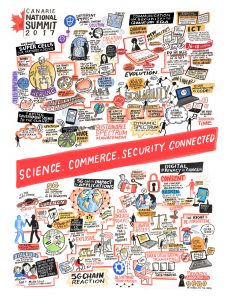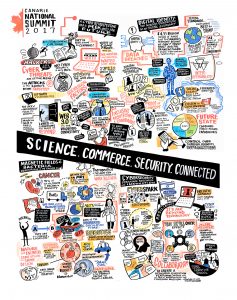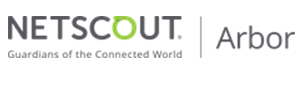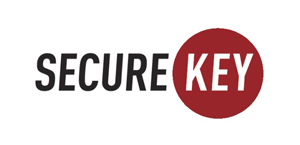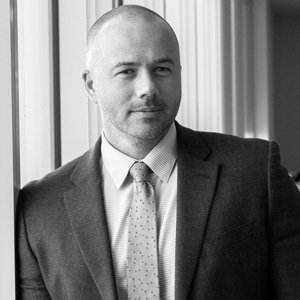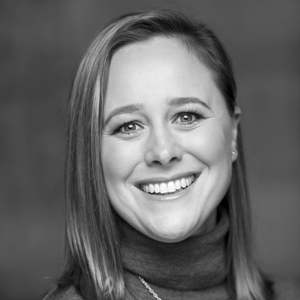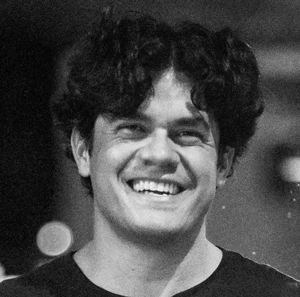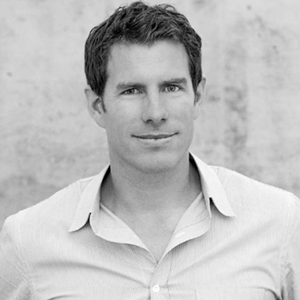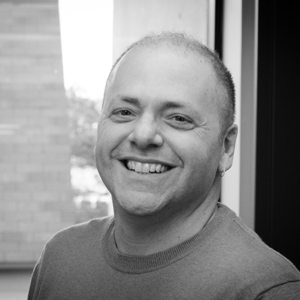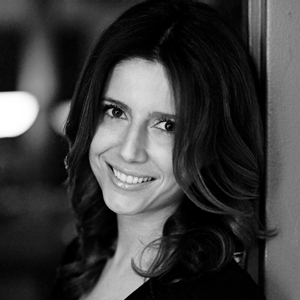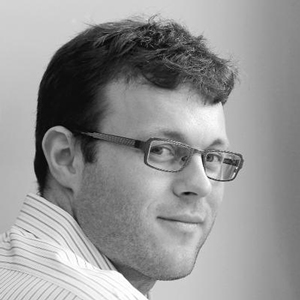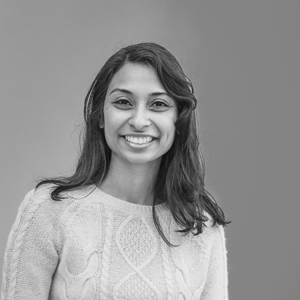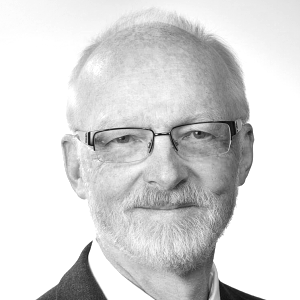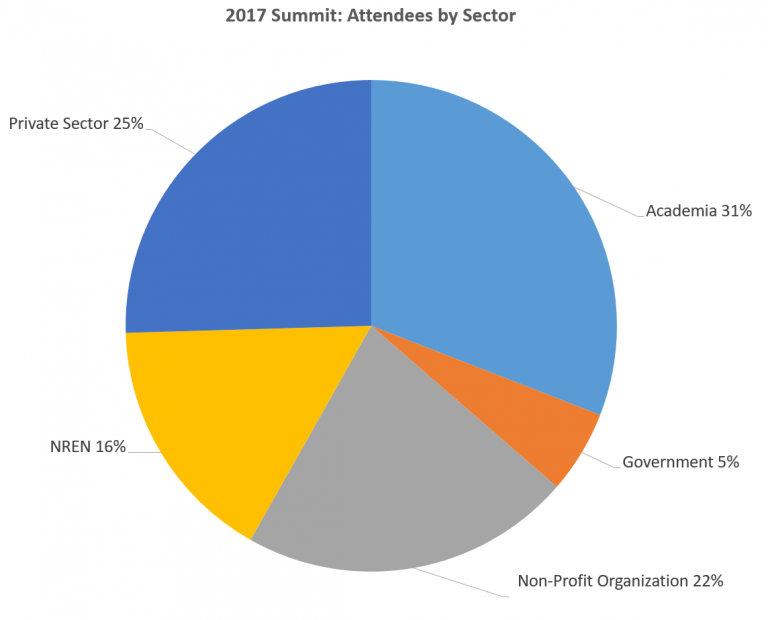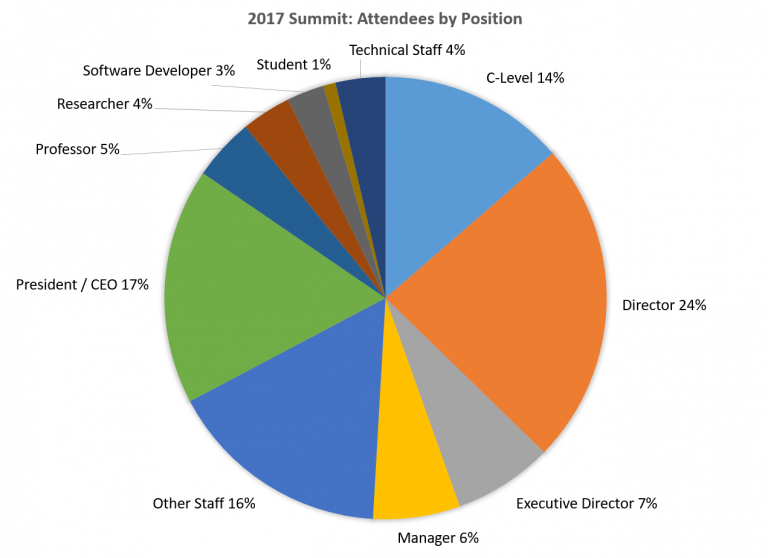CANARIE National Summit 2018
October 2 - 3, 2018
Automation Nation
IF YOU COULD AUTOMATE IT, WOULD YOU?
Gather with leaders in research, private industry, and government to explore the opportunities and challenges in Canada’s automated future and the impact on business, innovation, discovery and ethics.
BALANCE
Manual vs automated: how do the two realities tip the scale? Discover what a truly automated nation would mean for our everyday lives.
LEARN
How will AI and automation impact Canadian research and discovery? Learn from trailblazing researchers about national and global breakthroughs.
ENGAGE
Engage with your peers and meet new colleagues to collaborate on new ideas and initiatives.
Take 2 minutes to see why you should attend the CANARIE National Summit:
2017 Attendee Feedback Highlights
“Above and beyond my expectations. Great value for this level of conference.”“The CANARIE Summit is one of the best conferences I attend each year. Full stop.”What was the highlight of this year’s Summit?
”Diversity of backgrounds of attendees and speakers, openness to share/discuss.”“For me…the highlight was to gain a broad overview of digital, policy and research initiatives in Canada.”“Everything was a highlight: successful and innovative, the organization, speakers, animators, hospitality, originality (music, movement, humour)”“Getting a clear perspective on the direction technology is taking us and how one will need to adapt in order to stay relevant.”Featured Speakers
Alex Benay
Chief Information Officer, Government of Canada
Alex Benay was appointed the Chief Information Officer of the Government of Canada, effective April 3, 2017.
Prior to this appointment, Alex was the President and Chief Executive Officer of the Canada Science and Technology Museums Corporation since July 2014.
From 2011 to 2014, Alex was Vice-President of Government Affairs and Business Development at OpenText. He has played a leadership role in Canada’s digital industry, as well as in promoting the global shift to digital in organizations such as the G20, the Commonwealth Secretariat and the Olympics. Before joining OpenText, Alex managed various teams and programs at the Canadian International Development Agency, Foreign Affairs and International Trade Canada, Natural Resources Canada, and Library and Archives Canada.
Alex has a B.A. in History from the University of Ottawa and a master’s degree in History.
AI and the Public Service | Tuesday, October 2 at 3:45 PM
Without question, artificial intelligence will change the way the public sector delivers services to its citizens. What this change will look like and how soon it will come to pass is yet to be seen. Join Alex Benay, Chief Information Officer of Canada for an exploration of issues related to AI applications in the public sector – from privacy and data sovereignty, ethical standards for automated decision making and the future of work.
Natalie Cartwright
Co-founder & COO, Finn AI
Natalie Cartwright, co-founder of Finn AI, is an innovator in the world of financial technology. Working alongside global tier banks and credit unions, her company empowers financial institutions to build better consumer relationships by providing AI-powered personal banking assistants. Regularly found featured in the likes of USA Today, American Banker and Bloomberg, Natalie is a leader in voicing the ethical impacts of artificial intelligence, as well as the potential of technology to improve financial wellbeing. Prior to founding Finn AI, Natalie worked at the Global Fund in Geneva managing a USD $250 million health investment portfolio.
Bridging the Gap: Leveraging Conversational AI to Improve Financial Literacy | Tuesday, October 2 at 1:30 PM
Join Natalie Cartwright for an overview of the evolution of conversational AI from a Fintech perspective. Natalie’s discussion will focus on how AI technology can democratize access to financial services and information for under-banked populations around the world. The efficiencies and scalability of AI will benefit every customer, teaching them the fundamentals such as debt management, credit scores, and budgeting. Financial literacy will level the playing field and afford everyone – not just the wealthy – the opportunity to learn and grow with their money.
Dr. Pablo Samuel Castro
Senior Research Software Developer, Google
Pablo was born and raised in Quito, Ecuador, and moved to Montreal after high school to study at McGill. He obtained his undergraduate, masters, and PhD at McGill, focusing on Reinforcement Learning. After his PhD Pablo did a 10-month postdoc in Paris before moving to Pittsburgh to join Google. He has worked at Google for almost 6 years, and is currently a research Software Developer in Google Brain in Montreal, focusing on fundamental Reinforcement Learning research, as well as Machine Learning and Music. Aside from his interest in coding/AI/math, Pablo is an active musician (https://www.psctrio.com), loves running (5 marathons so far, including Boston!), and discussing politics and activism.
Learning the Underlying Structure of Music | Tuesday, October 3 at 2:30 PM
Structure plays an essential role in the creative process of musicians, and artists in general. Whether it is the structure relating melody to harmony, the rigid rules of counterpoint, what renders a song “blues”, or what makes a rap lyric hip, musicians weave different structural threads into the tapestry of their art. But finding good, and lasting, structures is hard, often taking many iterations over multiple centuries. In a sense, as a musical species, we have been sifting through centuries of “data” trying to extract the underlying patterns that represent the type of music that works best.
Extracting patterns from very large datasets is exactly what machine learning (and deep learning in particular) are best at. At Google Brain, we are exploring different ways we can leverage deep learning to uncover some of the patterns in the music around us; this work ranges from learning to complete Bach chorales, to generate virtuoso-sounding piano performances, to producing interesting lyrics. Our research aims to gain a better scientific understanding for how humans produce and consume music, as well as to build intelligent tools to assist in the creative process. We want to empower musicians, not replace them!
Dr. Sean Gourley
TED Fellow, Founder and CEO of Primer
Sean Gourley is founder and CEO of Primer. Previously, he was CTO of Quid, an augmented-intelligence company he co-founded in 2009. Prior to Quid, Gourley worked on self-repairing nano-circuits at NASA Ames. He holds a PhD in physics from Oxford, where his research as a Rhodes Scholar focused on complex systems and the mathematical patterns underlying modern war. This research was published on the cover of Nature. He has served as a political advisor, briefed USCENTCOM at the Pentagon and addressed the United Nations in Vienna. He is a two-time New Zealand track and field champion.
Gourley sits on the Knight Commission, serves on the Board of Directors at Anadarko (NYSE:APC), and is a TED Fellow.
Augmented Intelligence: How Big Data Can Make us Smarter | Wednesday, October 3 at 9:00 AM
In this lecture, Sean Gourley talks about the three kinds intelligence: artificial intelligence (machines), collective intelligence (wisdom of the crowds), and augmented intelligence (amplifying human cognition). He uses the example of three games of chess to illustrate these concepts and show how augmented intelligence can beat artificial intelligence and collective intelligence. In fast-paced and illuminating keynotes, Gourley reveals about how the human brain processes information and filters out the noise, and he shows how we attempt to mirror this with software tools like Google’s PageRank and Facebook’s edge rank algorithms. Gourley will discuss the work his is doing with his company, Quid, designing interfaces for humans to interact with data and algorithms. With highly visual examples of how this allows humans to augment their intelligence through software and algorithms, Gourley shows you a side of big data you have never seen before.
Dr. Ian Kerr
Canada Research Chair in Ethics, Law & Technology, University of Ottawa
Ian Kerr holds the Canada Research Chair in Ethics, Law & Technology at the University of Ottawa, Faculty of Law, with cross appointments to the Faculty of Medicine, Department of Philosophy and School of Information Studies. He has published books and articles on topics at the intersection of ethics, law and technology and is currently engaged in research on two broad themes: Privacy and Surveillance; and Human-Machine Mergers. Building on his prior Oxford University Press book, Lessons from the Identity Trail, his ongoing privacy work focuses on the interplay between emerging public and private sector surveillance technologies, civil liberties and human rights. His more recent work, including his new book, Robot Law (with Ryan Calo and Michael Froomkin), focuses on legal and ethical implications of AI, robotics and implantable devices.
Dr. Kerr’s research has attracted eight million dollars in support from the Canada’s Tri-Council, including recent funding for his work on AI, robotics, artificial organs and medical enhancement devices. His devotion to teaching has earned him several awards and citations and his courses have garnered international attention, with regular invitations to lecture and teach at prestigious institutions around the world. Dr. Kerr is co-author of Managing the Law: The Legal Aspects of Doing Business, a business law text used by thousands of students each year at universities across Canada.
Can Robots Invade Your Privacy? | Wednesday, October 3 at 11:15 AM
Machines are getting pretty good at doing things by themselves. They can sense their environments. They can learn from the data that they have gathered or been given. And, they can make accurate predictions or sound decisions about people and things which can be acted upon without human intervention or oversight. As a result, robots and AIs are starting to outperform human experts in an increasing array of narrow tasks, including driving, surgery, and medical diagnostics. This is fueling a growing optimism that robots and AIs will exceed humans more generally and spectacularly; some think, to the point where we will have to consider their moral and legal status.
But the law does not currently think about robots in this way. For example, when it comes to spying robots or AI used by law enforcement agencies to conduct mass surveillance, privacy law generally applies only when some human comes to know what the robots know. Judge Posner, for example, has famously opined that robots and AIs cannot invade privacy because they are not sentient beings. Indeed, most judges and many lawyers share the view that since robots and AIs are incapable of human-level cognition, they are of no consequence to our privacy—we don’t need to worry about privacy unless or until there are human eyes on the data.
In this keynote address, Ian Kerr, Canada Research Chair in Ethics, Law and Technology challenges the traditional view from both a legal and ethical perspective. He argues that when the likes of Siri or Alexa are able to form reliable beliefs about us and are also able to act on those beliefs, the traditional approach of Judge Posner and others leads to the wrong conclusion in law and in ethics.
Dr. Helen Papagiannis
Expert on Augmented Reality
Dr. Helen Papagiannis is a world-leading expert in the field of Augmented Reality (AR). The author of the brand-new Augmented Human—the first non-technical, accessible book on AR—she reveals how this technological revolution will impact us and our organizations, and the opportunities that lie within this rapidly growing industry.
Dr. Helen Papagiannis has been working with AR for a decade as a researcher, designer, and technology evangelist. Dr. Papagiannis was named among the NEXT 100 Top Influencers of the Digital Media Industry. She is the former Chief Innovation Officer at Infinity Augmented Reality Inc. and Senior Research Associate at York University’s Augmented Reality Lab.
Augmented Human: How Technology Is Shaping the New Reality | Tuesday, October 2 at 9:45 AM
Our digital future is no longer a distant promise, but a rapidly growing industry. Consider Facebook’s $2 billion acquisition of Virtual Reality headset maker Oculus, Google’s part in leading a $542 million investment in Augmented Reality company Magic Leap, and Microsoft’s introduction of holographic experiences with HoloLens. In this truly cutting-edge talk, Dr. Helen Papagiannis helps us understand the significance of Augmented Reality (AR). What are the opportunities AR presents for business, design, and culture? How can we contribute to and help define this new technological era? And how will it forever change the way we live, work, and play? With great gusto, Dr. Papagiannis leads us head-on into our virtual future.
Dr. Isaac Tamblyn
Research Scientist, National Research Council
Isaac Tamblyn is a research scientist at the National Research Council of Canada. He obtained a PhD in Physics from Dalhousie (2009) as a Killam Scholar. Subsequently, he carried out postdoctoral work at Lawrence Berkeley Laboratory and Lawrence Livermore National Laboratory. He currently leads a team focused on application of artificial intelligence and deep learning to understanding and controlling the properties of materials at the nanoscale.
Untangling nets – understanding deep learning and modern AI | Tuesday, October 2 at 11:15 AM
Deep learning is an approach to machine learning which is built upon mathematical models of large networks of interconnected and interacting neurons. Depending on the connectivity and training method used in the construction of such nets, many different classes of problems can be solved. These include superficially unrelated tasks such as natural language processing and translation, computer vision, image recognition, text-to-speech (and speech-to-text), synthetic data generation and augmentation, dimensionality reduction, and clustering. It is rare to see a new algorithmic paradigm which can be applied so effectively and so broadly.
Deep learning has proven to be particularly powerful when coupled with complementary techniques such as reinforcement learning. Seemingly challenging games such as Atari, Chess, DOTA 2, and most famously Go, have all been mastered by software agents powered by deep neural networks. When trained on modern hardware accelerators, these agents rapidly achieve superhuman skill levels.
The definition of difficult is changing.
We are now in an era where autonomous learning algorithms are widely available and accessible to researchers working within many scientific disciplines. Given the demonstrated successes of deep learning, a growing number of researchers are applying these techniques to longstanding challenges in the physical sciences. Dr. Tamblyn will discuss some of the network architectures which currently exist, how they work, and give examples of what scientists are using them for.
Dr. Pooja Viswanathan
CEO, Co-founder, Director, Braze Mobility
Following her passion to help those with accessibility needs, Pooja completed trans-disciplinary doctoral and post-doctoral research in robotics and assistive technologies, publishing several peer-reviewed conference and journal articles on “smart” wheelchairs that prevent collisions and provide wayfinding assistance (featured in international newspapers, and Canadian radio and TV shows). Pooja also has industry experience in various sectors including banking, telecommunications, pharmaceuticals, and automotives. She has secured competitive grants and earned prestigious scholarships/fellowships from NSERC, Google, Precarn, Alzheimer’s Society, Ontario Brain Institute, and the AGE-WELL Networks of Centres of Excellence (NCE), totalling over $325,000. She currently leads business and customer development at Braze, and also acts as a consultant to many Canadian networks and organizations in the areas of knowledge translation and commercialization. See Pooja’s publications here.
A Braze(n) Journey of Smart Wheelchairs: from Research to Market | Wednesday, October 3 at 10:00 AM
Robin Winsor
President and CEO, Cybera
Robin Winsor is a technology leader and entrepreneur who has led several organizations from start-up and growth to international success. He has worked in both the commercial and non-profit sectors, specializing at the crossroads where information technology is applied to traditional sectors such as oil and gas and health. He is often sought as a speaker on the use of technology for the public good.
Before joining Cybera as President and CEO in 2010, Robin invented and developed the world’s first direct digital x-ray system. The company he formed around this, Imaging Dynamics, won the 2005 Cool Companies Award for being an innovative and exciting place to work. He is a past recipient of a Manning Innovation Award, the Ernst & Young Entrepreneur of the Year Award, and in 2012, received a Queen’s Diamond Jubilee Medal for outstanding service to Canada. He holds multiple patents and has authored standards that are still used in the medical, well-logging and seismic industries.
Preparing for a Future with AI | Wednesday, October 3 at 1:45 PM
It is becoming difficult to keep up with the exciting and sometimes alarming technology news that emerges every day: from AI-generated video making it impossible to tell the real from the fake, to bots controlling conversations on social media. Somewhere in the middle, humans are trying to figure out what’s left for them to do. When the atomic bomb was developed in World War II, political leaders were able to control who had access to the means and development of that new and very powerful piece of technology. Today, government cannot control the proliferation of new tech. The pace of change is simply too fast for our legislative, regulatory and even educational systems to keep up. If we cannot look to our political leaders to set the codes of conduct for new technologies, then who will? In the next few decades we will need to develop a new relationship between humans and machines. This talk will discuss some of the ways we can benefit from those changes, the perils if we don’t adapt and what all this will demand of us.
Program
Please note: the CANARIE National Summit will be conducted in English.
All Summit sessions, including meals and networking breaks will take place in the Canada Room of the National Arts Centre, 1 Elgin Street, Ottawa. All Summit participants are invited to attend CANARIE’s 25th Anniversary Reception on the evening of October 2nd at the O’Born Room of the National Arts Centre.
| October 2, 2018 | ||
| 8:00 – 9:30 AM | Registration and Breakfast |
|
| 9:30 – 9:45 AM | Opening Remarks |
Jim Ghadbane, President and CEO, CANARIE Kathryn Anthonisen, Vice President, External Relations, CANARIE |
| 9:45 – 10:45 AM | Dr. Helen Papagiannis, Expert on Augmented Reality |
|
| 10:45 – 11:15 AM | Networking Session |
|
| 11:15 AM – 12:00 PM | Dr. Isaac Tamblyn, Research Scientist, National Research Council |
|
| 12:00 – 1:30 PM | Lunch and Networking Session |
|
| 1:30 – 2:30 PM | Bridging the Gap: Leveraging Conversational AI to Improve Financial Literacy |
Natalie Cartwright, Co-founder & COO, Finn AI |
| 2:30 – 3:20 PM | Dr. Pablo Samuel Castro, Senior Research Software Developer, Google |
|
| 3:20 – 3:45 PM | Networking Session |
|
| 3:45 – 4:30 PM | Alex Benay, Chief Information Officer, Government of Canada |
|
| 5:00 – 7:00 PM | CANARIE’s 25th Anniversary Reception |
O’Born Room, National Arts Centre |
| October 3, 2018 | ||
| 8:00 – 9:00 AM | Registration and Breakfast |
|
| 9:00 – 10:00 AM | Dr. Sean Gourley, TED Fellow, Founder and CEO, Primer |
|
| 10:00 AM – 10:45 AM | A Braze(n) Journey of Smart Wheelchairs: from Research to Market |
Dr. Pooja Viswanathan, CEO, Co-founder, Director, Braze Mobility |
| 10:45 AM – 11:15 AM | Networking Session |
|
| 11:15 AM – 12:15 PM | Dr. Ian Kerr, Canada Research Chair in Ethics, Law & Technology, University of Ottawa |
|
| 12:15 – 1:45 PM | Lunch and Networking Session |
|
| 12:45 PM – 1:30 PM | CANARIE Looking Ahead |
Jim Ghadbane, President and CEO, CANARIE |
| 1:45 – 2:45 PM | Robin Winsor, President and CEO, Cybera |
|
| 2:45 PM | Closing Remarks |
Jim Ghadbane, President and CEO, CANARIE Kathryn Anthonisen, Vice President, External Relations, CANARIE |
Registration
All fees are in CAD and are subject to HST. Registration fees include all on-site meals throughout the Summit proceedings, in addition to CANARIE’s 25th Anniversary Reception on the evening of October 2nd.
| CANARIE Members* | Non-Members | |
|---|---|---|
| Early Bird Rate (pre August 8, 2018) | $299 | $349 |
| Standard Rate (August 8 – September 28, 2018) | $349 | $399 |
| Late Registration Rate (September 29 – October 3, 2018) | $449 | $499 |
*Check to see if your organization is a member of CANARIE.
Register NowSponsorship
Sponsors of the CANARIE National Summit are able to strengthen their exposure to and collaboration with Canada’s research, education and innovation communities through extended networking sessions and opportunities that include brand promotion, exhibition, and the introduction of speakers.
The 2017 National Summit included diverse sessions on the opportunities and challenges that exist in the interconnectedness of science, commerce, and security. Attendees reported high satisfaction with the event, with 95% of attendees stating they were “Extremely Satisfied” with the Summit. An overwhelming majority of participants said they would recommend the Summit to colleagues.
| Platinum Sponsor $7,500* 1 available | Gold Sponsor $5,000* 0 available | Silver Sponsor $2,500* |
| *For CANARIE Members. Non-Member Price is $10,100. | *For CANARIE Members. Non-Member Price is $7,600. | *For CANARIE Members. Non-Member Price is $5,100. |
|
| Silver Sponsors may choose one of the following options: Option A
|
* CANARIE membership includes a $2,600 discount per year for a CANARIE program, i.e. Canadian Access Federation or Sponsorship. The member organization may select the CANARIE program to which its annual discount could be applied.
Should you wish to become a CANARIE member, please visit our page and complete the online form at: http://www.canarie.ca/members/become-a-member/.
How to Sponsor
Please complete a Sponsorship Agreement and send it to [email protected] along with a high-resolution logo of your organization. Upon receipt of the completed Agreement and your logo the promotion of your brand through National Summit communications channels will begin.
If you have any questions about sponsorship opportunities, please contact:
Ela Yazdani
Director of Communications, CANARIE
[email protected] | 613-943-5432
Platinum Sponsor
Gold Sponsors
Summit Collaborator
Silver Sponsors
Travel & Accommodations
Andaz Ottawa Byward Market
325 Dalhousie Street, Ottawa, Ontario
Set in the heart of ByWard Market, a historic marketplace and presently an urban centre of chic boutiques, galleries, restaurants and nightlife, Ottawa’s newest hotel inspires exploration of Canada’s Capital city. The residentially styled guestrooms and public spaces reflect a sense of place, showcasing Canadian design, materials and motif. The modern high-rise hotel offers stunning views across the market to the Parliament Buildings and the scenic Gatineau Hills from the rooftop restaurant and lounge.
The CANARIE room block at the Andaz Hotel is now sold out, but other hotels may still have availability for the Summit dates. Please consider checking your travel dates on kayak.com, which will search all available guest rooms in the area. Please note that some bookings through this service may require non-refundable bookings.
Reservations
Attendees must make their own accommodation and payment arrangements directly with a hotel.
Travel to Ottawa
Local Dining
Ottawa is host to a wide range of restaurants to fit every palate. The city’s ethnic diversity will allow you to travel the tastes of the globe as you explore your surroundings. The Summit’s venue, the National Arts Centre, is within steps of the Parliament Buildings and a host of restaurants in Ottawa’s famous Byward Market.
Ottawa International Airport
Visit the Ottawa International Airport website to find flight information and rental car options. Transportation is also available directly from the terminal to downtown Ottawa via bus, taxi, limousine, or Uber.
VIA Rail
VIA Rail provides frequent daily service to Ottawa from most Canadian cities. Ottawa’s Central Station is a short bus or taxi ride from downtown.
Public Transit
OC Transpo provides comprehensive transit services to nearly one million people in Ottawa. The National Arts Centre is easily accessible by OC Transpo from the airport and train station.
Contact
Registration Questions
Please email [email protected] or call 1-613-680-6950.
National Arts Centre
1 Elgin Street, Ottawa, Ontario


